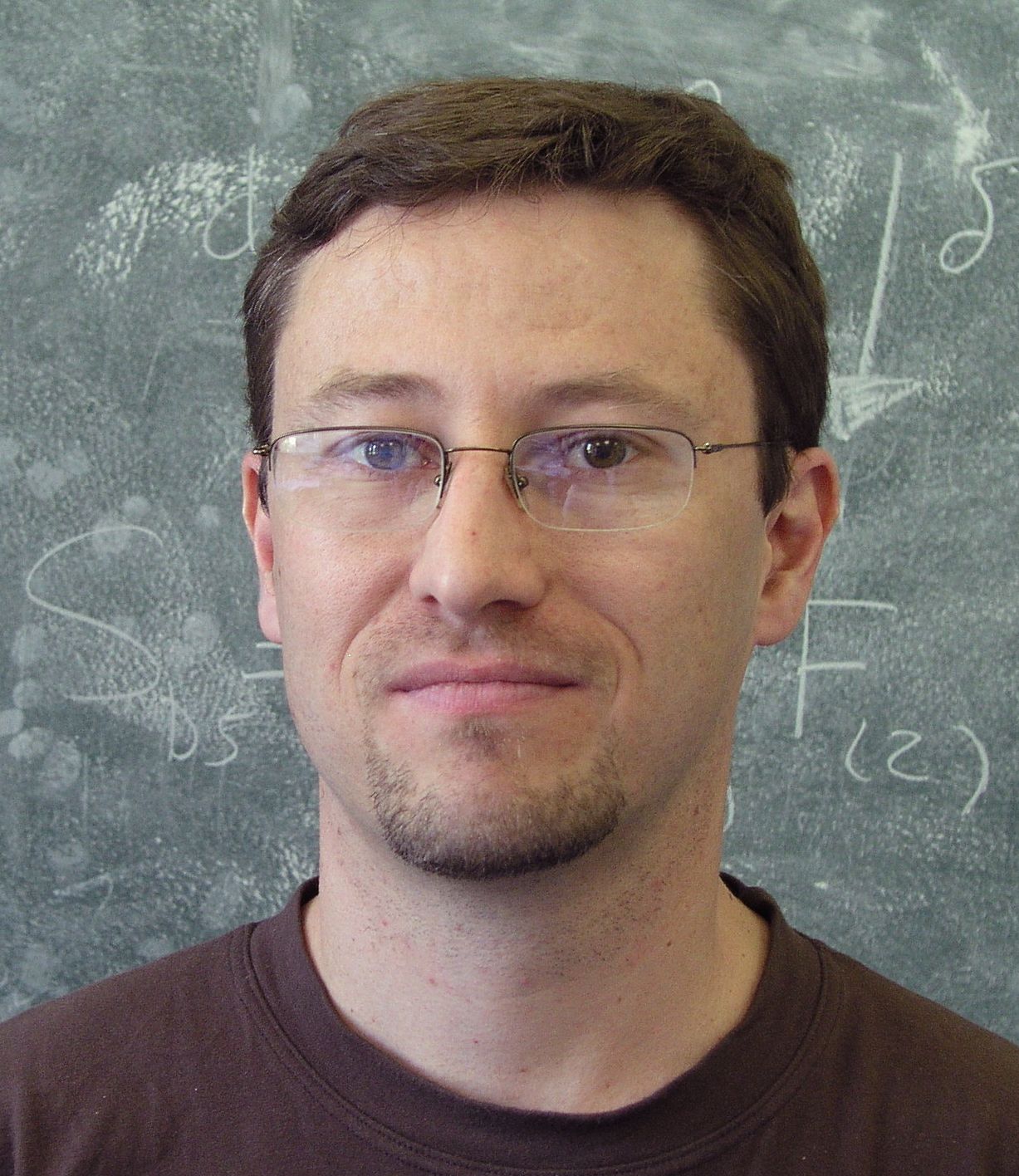
| Boris Pioline | |
|
Chargé de recherches au CNRS | |
|
LPTHE ,
Universités Paris VI et VII Tour 24-25, 5eme étage, Boite 126, 4 place Jussieu 75252 Paris FRANCE couloir 24-25, 5eme étage, bureau 06 Tel: (33) 1 44 27 74 29 Fax: (33) 1 44 27 70 88 |
LPTENS Département de Physique de l'ENS 24, rue Lhomond 75005 Paris FRANCE 2eme étage, bureau Dc 19 Tel: (33) 1 44 32 25 42 Fax: (33) 1 43 36 76 66 |
- My field of research is
high energy theoretical physics ,
whose goal is to understand quantum phenomena
at scales many orders of magnitude smaller
than the atom,
and in particular at scales where gravity itself becomes quantum mechanical. - My expertise is in Superstring theory , our current best and possibly only theory of quantum gravity to date. It is subsumed by M-theory , an elusive non-perturbative extension that still awaits a complete definition.
- For this purpose, I have spent a large part of my thesis and postdoctoral research to understand Non perturbative dualities , first discovered in 1995 by Hull, Townsend and Witten. These relate the weak coupling regime of one type of string theory to the strong coupling regime of another: the five superstring theories that were previously known are therefore but one, and more importantly this gives a way to get at non-perturbative effects in string theory, which was only defined as a perturbation series.
- In simple cases, these dualities form an infinite arithmetic group, so called U-duality group, a discrete remnant of a continuous symmetry group first found by Cremmer and Julia. Physical amplitudes have to be invariant, hence automorphic forms are a powerful tool, which I have applied with some success to obtain exact non-perturbative results in string theory.
- Another axis of my research concerns D-branes , extended solitonic objects that appear in string theory as the locus where open strings can end. Their dual nature as a gravitational (=closed string) background an a gauge theoretical (=open strings) system has led to the ideas of AdS/CFT correspondence and holography , which have given many insights on issues such as confinement, chiral symmetry breaking...
- More recently, I have been interested in understanding time-dependent backgrounds in time theory, using tools from studies above, in the hope of making contact with recent cosmological measurements.
- Even more recently, I have been interested in understanding the microscopic origin of the Bekenstein-Hawking entropy of black holes, beyond the infinite charge limit.
PhD Thesis
My PhD thesis is available- From the arXiv (no appendices),
- From the CCSD thesis archive ,
- or locally (french, gzipped postscript, updated 21/4/98).